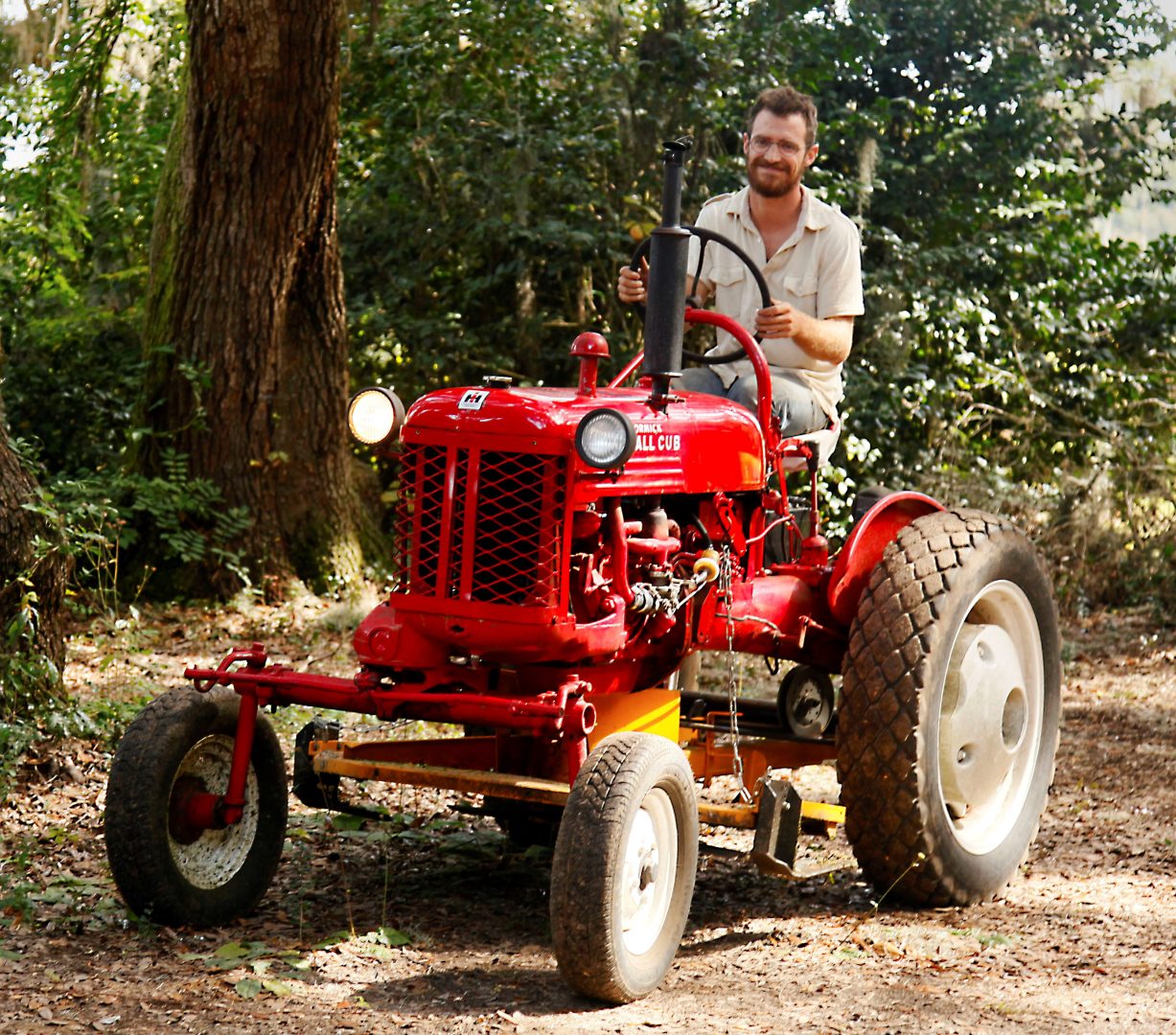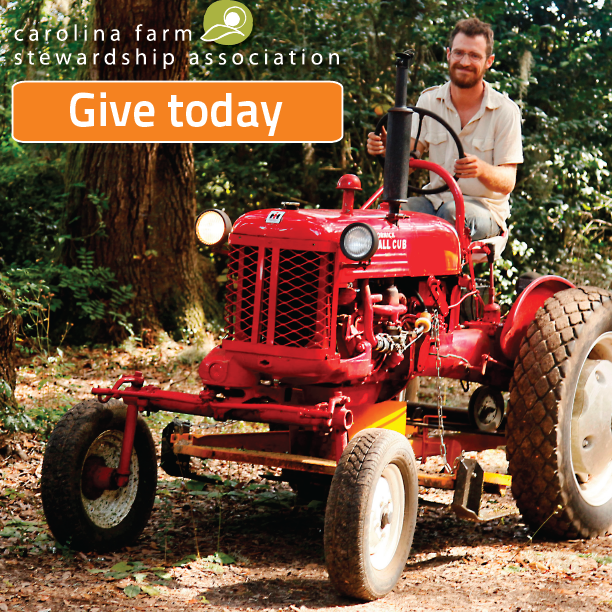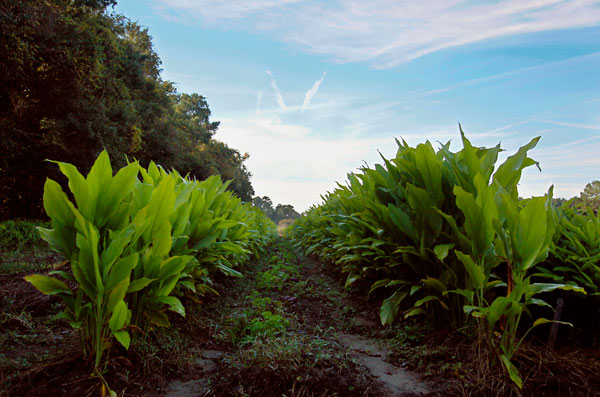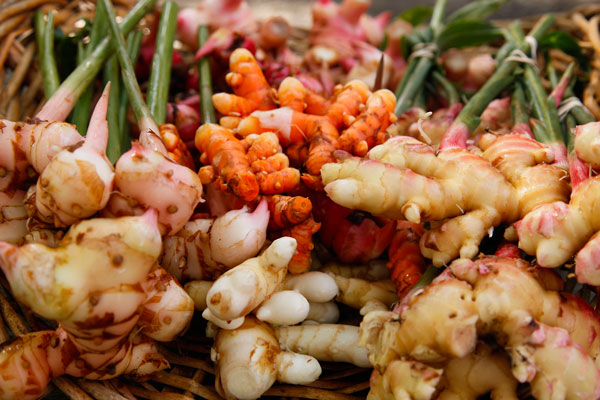by Stephanie Campbell, CFSA’s Outreach Coordinator
2000 pounds of ginger, 1200 pounds of turmeric, 500 pounds of galangal, and 500 pounds of taro, as well as jicama, burdock, sun chokes, and other exotic roots.
That’s what John Warren’s farm produced last year.
No, this farm isn’t in Southeast Asia. Spade and Clover Gardens is located in the Lowcountry of South Carolina on Johns Island. It’s a unique environment with weather affected by the coastal plains, the humid southern latitude, and heavy rains. It’s a perfect place to grow these exotic root crops and other Asian produce for local consumers and the world-renowned restaurants of Charleston.
But how did an artist-turned-farmer get interested in and learn how to grow these exotic crops? As a sculptor, John had respiratory infections as a result of fumes and dust from the materials he worked with, compounded by the fumes he breathed as a city bicyclist in New York City. Ginger root, he learned, is good for the respiratory system. Tumeric has anti-inflammatory qualities. A stay at a friend’s farm on Whidbey Island, Washington, was a wake-up call for him to how much better he felt living on a farm.
The journey to becoming a sustainable farmer is a difficult and complicated one, and success is far from assured. John was fortunate to be one of the earliest participants in a farmer apprenticeship program, led by CFSA partner organization, Lowcountry Local First.
CFSA’s vision . . . A Vibrant, Sustainable, Local Food System in the Carolinas that is good for the farmer and farm worker, good for the consumer, and good for the land.
In 2012, John was the recipient of a CFSA scholarship to the Sustainable Agriculture Conference and it was there that he attended the workshop “How Does Your Garlic Grow,” led by Pam Dawling. This is where he learned the basics of growing garlic along with other more exotic root crops.
Production methods at Spade and Clover Gardens utilize companion planting, cover-cropping, crop rotation, and the mutually beneficial qualities of each cultivar as an alternative to herbicides, pesticides, and over-fertilizing. CFSA is working with John to become USDA Certified Organic in 2017. John believes strongly in using organic practices and also knows that organic certification is a strong marketing tool.
Spade and Clover Gardens does sell traditional southern vegetables as well as the exotic roots, but John points out that growers in the Lowcountry need to be thinking about what they will be forced to grow in the future with monsoon-like rains and changing weather patterns. He also notes that customers are looking for something which will make them feel better and are more and more interested in the natural medicinal uses and health benefits of plants.
Diversifying products is an important strategy to keep the farm profitable. Diversifying markets is another. Spade and Clover Gardens sells retail through a 40-member CSA and two Farmers’ Markets, and wholesale to restaurants, an herbal store, a brewery and a kombucha maker, and through Eastern Carolina Organics and Grow Food Carolina. John is also considering value-added products such as infused honey and selling turmeric as a medicinal herb through website sales.
John knows that the mentoring, training, scholarships and professional consulting he has received has made it possible for him to learn to farm successfully. He is committed to passing along what he has learned and helping other aspiring farmers. We have no doubt that John and his farm will be a leader in forging a future for local, sustainable and organic agriculture in the Lowcountry and throughout the Southeast.
Farmers like John Warren can’t do it without you. Your gift today will provide the training and support another new farmer needs to succeed and provide us ALL with the food we need in the Carolinas. Please give generously.






